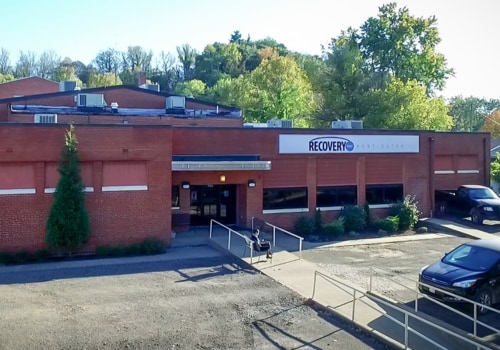A sponsor is morefocused on the program, whereas a recovery coach is more all-encompassing. Areyou trying to decide whether a sponsor or recovery coach would be best? Torecuperate, it can be important to make the proper decision at the appropriatetime. Making the appropriate choice, however, may benefit from understandingmore about each of these significant figures.
It follows that it isnot unusual that addicts to seek out extra help. But where can they turn forthis extra help? Do you require a sponsor to work with you? Or do they requirethe assistance of a recovery coach? What makes the two different? Sponsorsaren't rehabilitation counselors. The relationship between sponsors and thosewho are seeking recovery is one of service rather than of business. Workingindividuals are supported by sponsors through a 12-step program that offersinstructions on how to rehabilitate.
In essence, sponsorshave worked through the stages for themselves and have been mentors and guidesin recovery for more than a year. They occasionally develop a close friendshipwith the sponsor. In the professional recovery community, the position of arecovery coach is a relatively recent idea. Like sponsors, coaches do not speakfor any 12-step program.
Recovery coaches donot advocate for or support any particular plan or technique for obtaining orsustaining sobriety. Instead, sobriety and recovery coaches assist addicts inachieving specific objectives. They assist those in recovery in creating andadhering to structured recovery regimens. They may act as a conduit betweensponsors and qualified counselors.
Fighting substanceabuse is difficult. People in recovery frequently become aware of the need formore assistance. It can be beneficial to work with a sponsor and recoverycoach. Actively consider the advice of your recovery coaches if you want toheal as happily as possible.
It takes dedicationand access to a variety of recovery resources to build the best possibleversion of your recovered car. Your sponsor and recovery coach offers adviceand direction for your recovery. The holistic nature of a rehab coach's adviceis a key distinction. But a sponsor must direct you inside the confines of the12 12Step scholarship traditions and pledges.
A relatively newprofession in the recovery world is recovery coaching. In the early 2000s,recovery coaching developed into its niche by building on the more widespreadprofession of life counseling. While recovery coaching assists people withspecific goals for recovery and sobriety, life coaching focuses on helpingpeople define, incorporate, and maintain general life goals. Recovery coachesvary in terms of their degree, training, and the services they offer.
Some recovery coachescharge fees, in contrast to sponsors. Like sponsors, recovery coachesfrequently have intimate, personal ties with their clients. In a 12-stepprogram, a sponsor plays a distinct role from a recovery coach. They are basedin the community and assist everyone looking for liberation from the grip ofaddiction as well as those who haven't yet decided to give up using thesubstance of their choice.
In recent years, sobercoaching has grown in popularity as a service for those who want to stay soberbut need direction. Since a skilled sober coach can teach you constructivemethods to handle uncomfortable emotions, you might think of sober training asa type of life training. Your sober coach will teach you how to deal withcravings, stay away from triggers, and try to enhance your life in general. Tomanage urges, some people may require sober mentors or sponsors.
People who are new torecovery are shown through sober training that long-term sobriety isachievable. Sober counseling and sponsorship operate in different ways. Asponsor is the best option if you want a free sponsor and want to walk throughthe steps with someone who has been in your position before. Some people findsober training to be more appealing.
Sponsors are perfectif you feel like you need someone on your side who gets what you're goingthrough. Sponsors are willing to support you in ways that your friends orfamily can't because they volunteer their services to the recovery community.In contrast to recovery coaches, who provide professional services like thosecarried out by recovery specialists, sponsors function and support their ownlife experiences and street wisdom. Both choices are very supportive andhelpful, and they can help people stay on the correct path for long-termrehabilitation.
In reality, threepeople can help an addict transition from active use to sobriety: a sponsor, arecovery coach, and an addiction counselor. A recovery coach is someone who arecovering addict may confide in and who they can trust with their privatematters, but the coach is not a licensed counselor. If a recovering addict is agood candidate for training services, a recovery coach will meet with them.Keeping up with new developments in treatment for addiction and recovery is oneof the responsibilities of a sober coach.
Trying to decide if arehab coach or a sponsor would be ideal for you? Making the proper decision atthe appropriate moment might be essential to a person's recovery. Making theappropriate choice, though, may benefit by learning more about each of thesesignificant individuals.
Sponsors aren'tcoaches for getting well. They are pretty dissimilar. Sponsors do not have abusiness connection with the recovered person; rather, it is one of service.
Sponsors assistparticipants in 12-step programs, which outline the recommended practices forrecovery.
Addiction has manyfacets and is complicated. And so is healing. There is no "one size fitsall" approach to healing, as one author put it. Regardless of the substancebeing utilized, it's downright difficult.
As a result, it is notunexpected when addicts need more help. But to whom may they turn for thisadditional assistance? Do they require a sponsor to work with them? Or do theyrequire assistance from a recovery coach? What makes the two different?
A relatively new ideain the professional recovery world is the recovery coaching role. Likesponsors, coaches do not speak for any 12-step programs. In reality, sobrietyprograms and approaches are not promoted or endorsed by recovery coaches.
Instead, sobriety andrecovery-focused goals are assisted by recovery coaches for addicts. Theyassist people in recovery by creating and adhering to structured recoveryregimens. They may also act as a conduit between sponsors and qualifiedcounselors.








Leave Reply